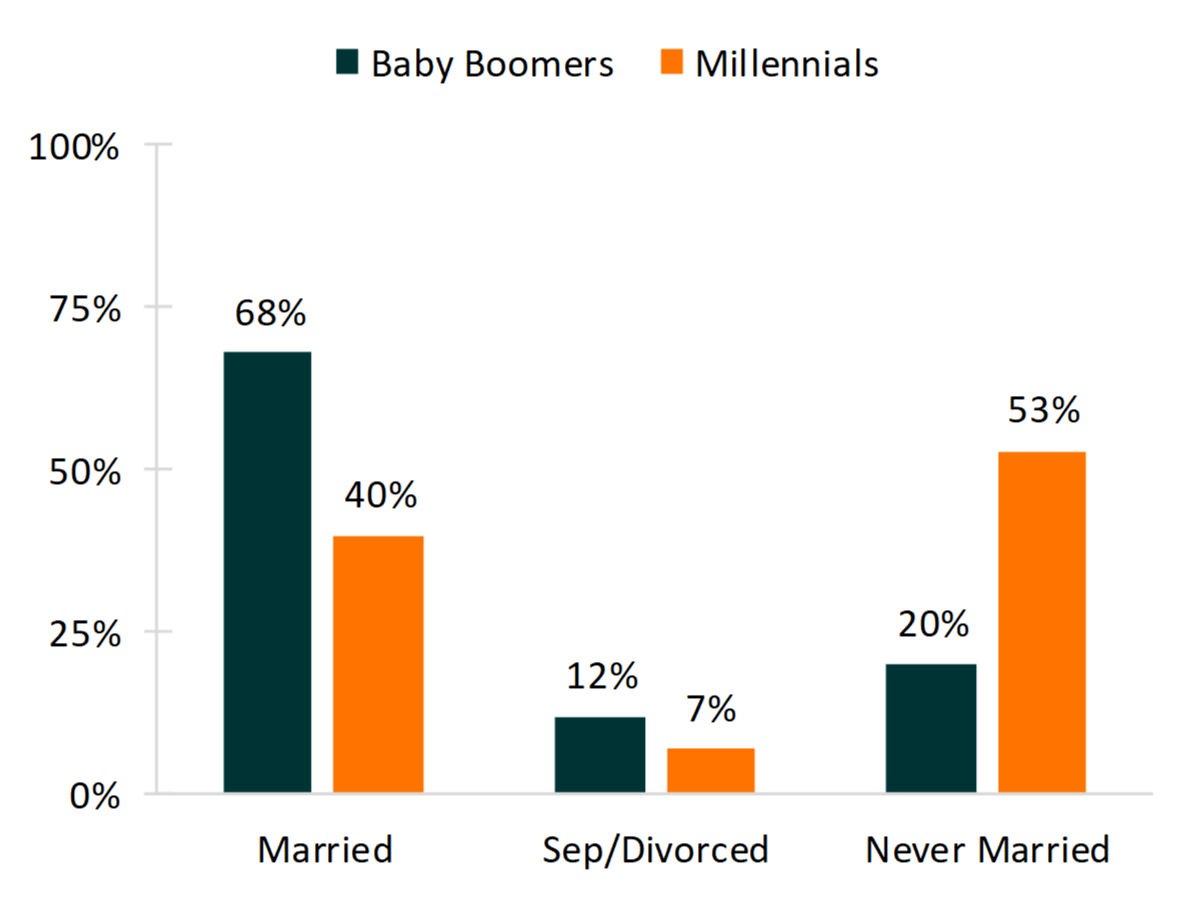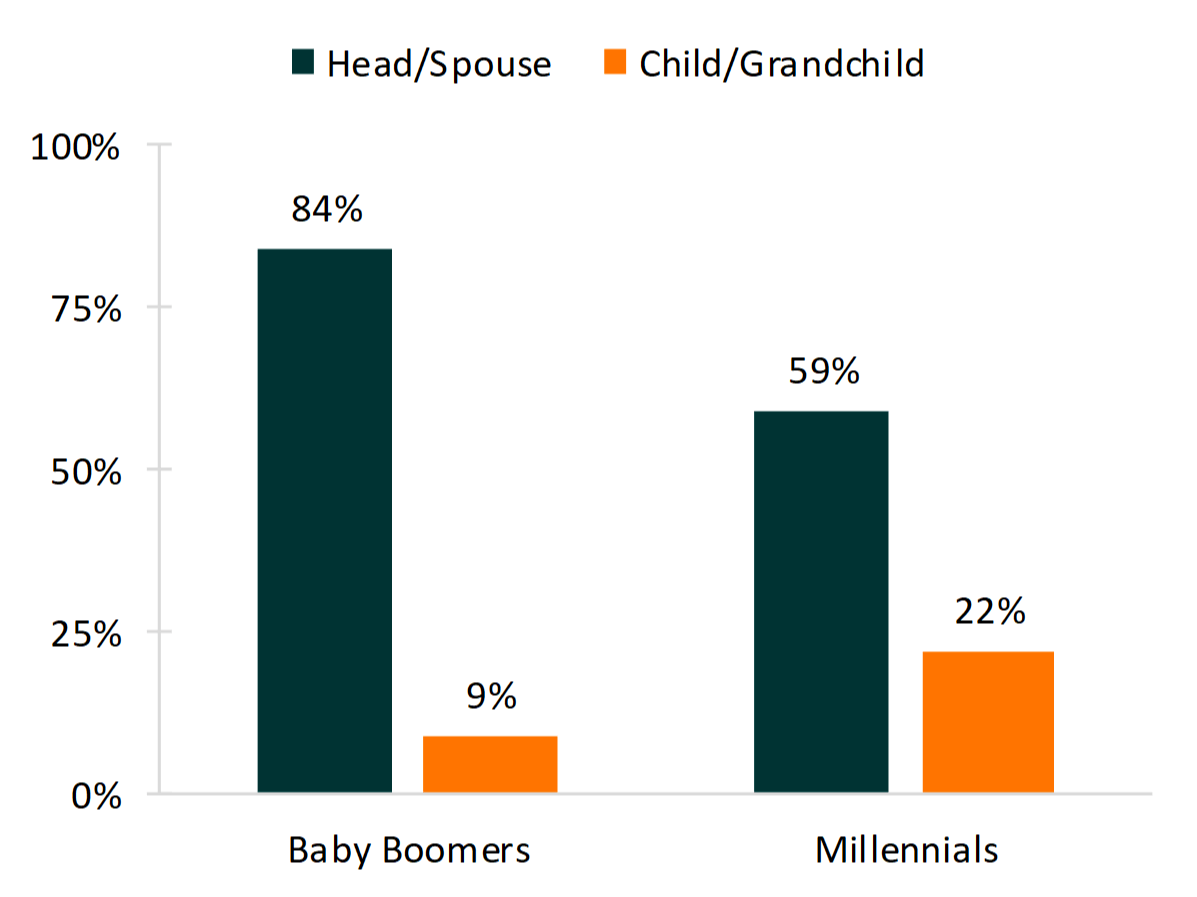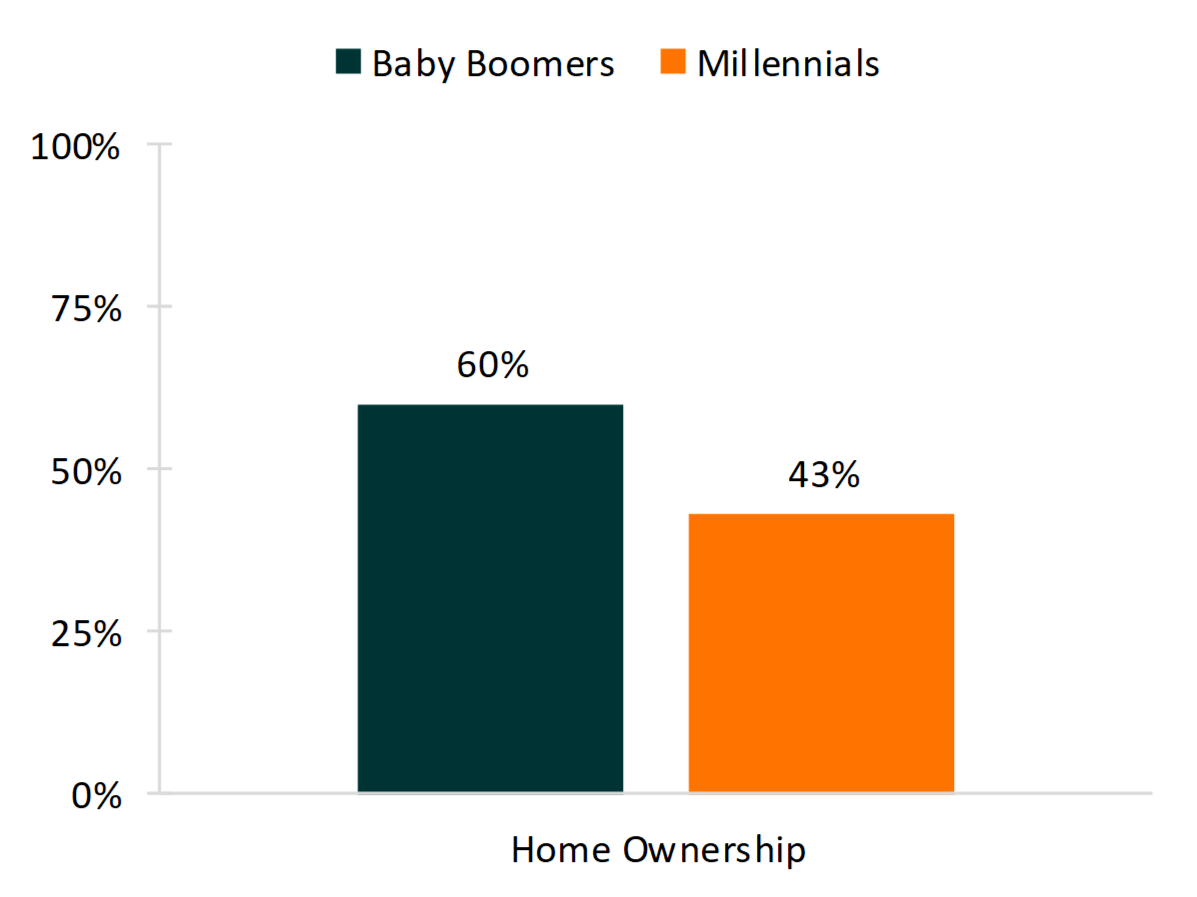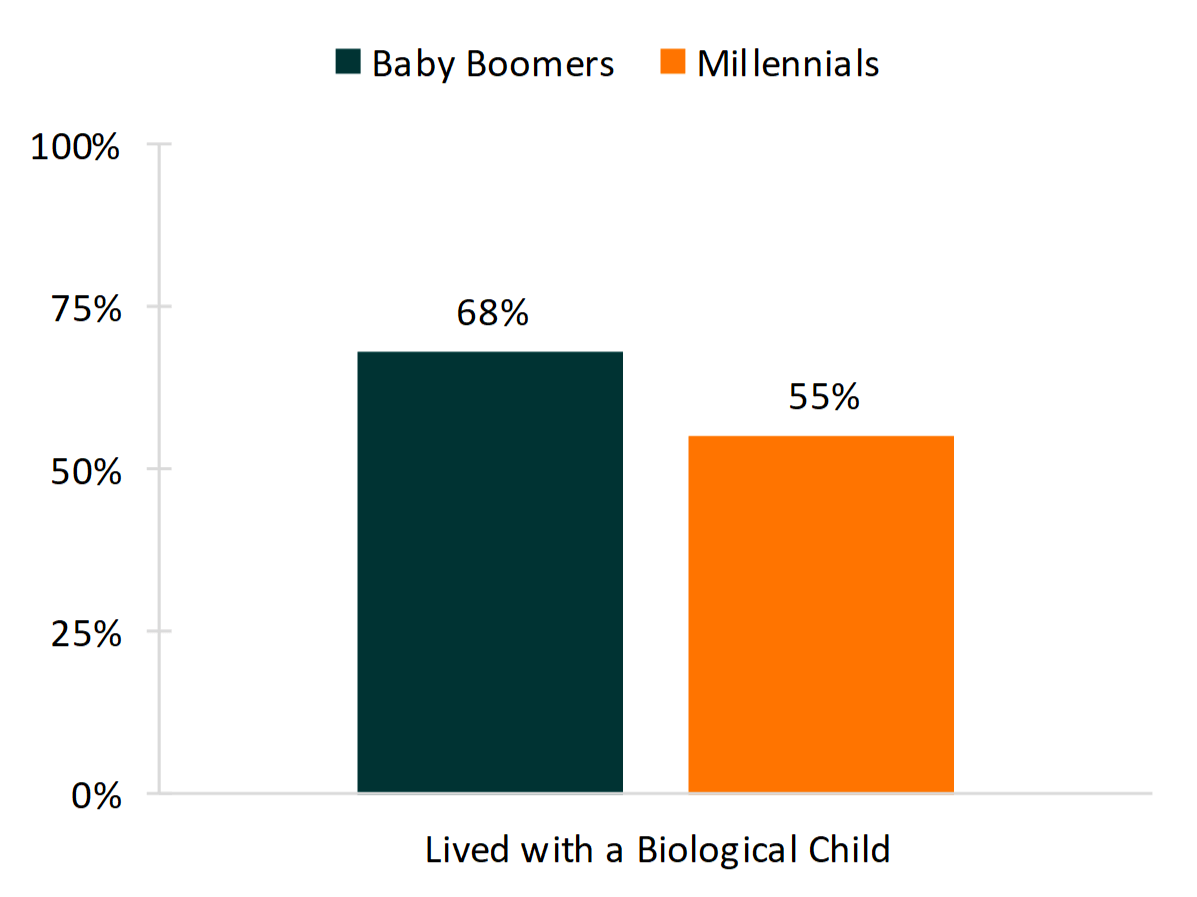Generational Differences During Young Adulthood: Families and Households of Baby Boomers and Millennials
Family Profile No. 07, 2017
Author: Lydia Anderson
As shown in FP-17-06, the composition of young adult Baby Boomers and Millennials differs markedly across factors such as racial-ethnic composition and education. In addition to such demographic differences, there have been substantial shifts in family behaviors. This profile examines differences at the family level between the two generations during young adulthood (those aged 25-34 in 1980 and 2015), using data from the 1980 Decennial Census and the 2015 American Community Survey. This approach ensures that we compare the two groups at a similar point in their lifetimes (ages 25-34) to ensure consistency.
*Note: The terms Baby Boomer and Millennial throughout this profile represent early members of each generation.

Marital Status
- In 1980, the majority (68%) of Baby Boomers aged 25-34 were married. This proportion decreased by 41 % over the past few decades, with only two-fifths of Millennials currently married in 2015.
- This corresponds to a similar decline in the proportion separated or divorced, which dropped from 12% to 7% between 1980 and 2015.
- In 2015, the majority of Millennials had never married, with the percentage more than doubling from 20% among the Baby Boomers in 1980 to 53% among the Millennials in 2015.
Figure 1. Marital Status of Baby Boomers and Millennials Aged 25-34, 1980 and 2015

Residential Independence
- The majority of Baby Boomers (84%) and Millennials (59%) lived in independent households in 1980 and 2015 (they were the spouse or head of household). However, the proportion living in an independent household decreased by 30% between the two generations.
- The share of young adults (25-34 years old) who are not living independently has doubled. One-fifth of Millennials aged 25-34 lived in their parent's or grandparent's home in 2015-up from about one-tenth in 1980.
Figure 2. Residential Independence of Baby Boomers and Millennials Aged 25-34, 1980 and 2015

Home Ownership
- Greater shares of Baby Boomers owned homes in young adulthood (25-34) than Millennials.
- In 1980, 60% of Baby Boomers in an independent household owned their own home, compared to just 43% of Millennials in 2015.
Figure 3. Home Ownership Among Baby Boomers and Millennials Aged 25-34, 1980 and 2015

Living with a Biological Child
- Baby Boomers more often lived with a biological child than their Millennial counterparts.
- While in 1980, over two-thirds of Baby Boomers (aged 25-34) lived with at least one biological child, in 2015, just over half of Millennials (aged 25-34) did so.
Note: Estimates of homeownership and living with a biological child only include respondents who were living independently (either the head of the household or spouse of the head).
Figure 4. Baby Boomers and Millennials Aged 25-34 Living with a Biological Child, 1980 and 2015

References
- Anderson, L. R. (2017). Generational differences during young adulthood: Baby Boomers vs Millennials. Family Profiles, FP-17-06. Bowling Green, OH: National Center for Family & Marriage Research. http://www.bgsu.edu/ncfmr/resources/data/family-profiles/anderson-demographics-baby-boomers-millennials-fp-17-06.html
- Ruggles, S., Genadek, K., Goeken, R., Grover, J., & Sobek, M. (2015). Integrated Public Use Microdata Series; Version 6.0 [dataset]. Minneapolis: University of Minnesota, http://doi.org/10.18128/001 O.V6.0.
Suggested Citation
Anderson, L. (2017). Generational differences during young adulthood: Families and households of Baby Boomers and Millennials. Family Profiles, FP-17-07. Bowling Green, OH: National Center for Family & Marriage Research. http://www.bgsu.edu/ncfmr/resources/data/family-profiles/anderson-families-households-boomers-millennials-fp-17-07.html
Updated: 11/07/2025 02:46PM

